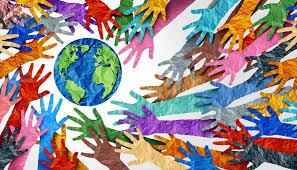Notifications

4 minutes, 15 seconds
-25 Views 0 Comments 0 Likes 0 Reviews

As global mobility reshapes demographics, the diaspora has become more than just a financial resource—it is an intellectual and strategic asset. Through active diaspora commentary, overseas citizens are playing a vital role in shaping the course of national development, bringing insight, pressure, and partnership to the heart of progress.
Across Africa, Latin America, and Southeast Asia, diaspora commentary is increasingly becoming a force multiplier in policy debates, civic activism, and national identity reconstruction. While remittances continue to support families and local economies, it is the voice of the diaspora—through blogs, podcasts, webinars, and think pieces—that is shifting narratives and inspiring reform.
This vocal engagement has placed diaspora engagement at the heart of digital diplomacy and collaborative governance.
A healthy democracy requires a diverse, inclusive, and critical development discourse. Diasporans, shaped by global experiences, often return with comparative perspectives that enrich this discourse. Their insights spark debates that question inefficient policies and champion innovation, particularly in governance, education, and public health.
Through this discourse, diaspora engagement bridges gaps in vision and helps national institutions embrace globally informed strategies.
Diaspora networks are no longer on the sidelines. They are influencing legislation, challenging government complacency, and shaping global partnerships. Their policy influence is seen in the rise of dual citizenship laws, diaspora bonds, and strategic reforms that favor innovation, investment, and inclusion.
Governments that create pipelines for transnational dialogue will benefit from a two-way flow of intelligence, capital, and credibility.
No longer bound by borders, civic participation has become an international phenomenon. Through digital platforms, diasporans engage in advocacy, petition for reform, and mobilize resources to support social justice, education, and infrastructure development in their homelands.
This sense of global citizenship is driven by a deep-rooted connection to home, and a desire to see their nation thrive—economically, socially, and politically.
Nation-building is no longer a local project. It is a global endeavor requiring the energy, intellect, and networks of people across continents. Nation-building today includes coding engineers in Berlin building national platforms for Lagos, healthcare professionals in Toronto organizing mobile clinics in Accra, and policy experts in Geneva drafting reform proposals for Nairobi.
This decentralized contribution is made possible by empowered diaspora commentary and digitally enabled diaspora engagement.
To build prosperous, inclusive nations, governments must formally recognize and institutionalize the contributions of their diaspora. Through strategic outreach, investment frameworks, and secure platforms for transnational dialogue, the power of diaspora commentary can be transformed from informal critique to formalized collaboration.
By enabling civic participation and supporting the ideals of global citizenship, countries can tap into a global pool of knowledge, finance, and influence.
Indeed, true national development in the 21st century will be achieved not by looking inward alone, but by embracing the power and potential of voices abroad—united in purpose, diverse in experience, and deeply invested in home.

